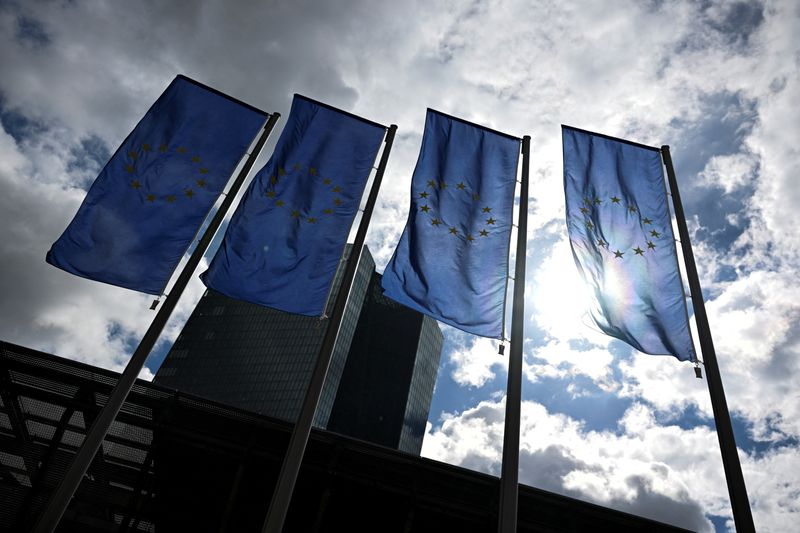By Jan Strupczewski
BRUSSELS (Reuters) – Italy’s Raffaele Fitto and Latvia’s Valdis Dombrovskis were asked by European Commission head Ursula von der Leyen on Tuesday to be in charge of making sure the EU’s 800 billion euro recovery fund is successfully spent by the end-2026 deadline.
The fund, set up in 2021 to help Europe recover from the COVID-19 pandemic, is a mix of grants and loans for each of the EU’s 27 countries and is unprecedented because all EU countries jointly borrowed the money. It has to be spent by 2026.
The challenge is that the biggest beneficiaries, like Italy which is to get a total of 194 billion euros from the fund, have to be very efficient in spending the money and implement hundreds of pre-agreed investments and reforms, called milestones, to get the money from the EU.
Spain, the second biggest beneficiary of the fund at 163 billion euros, has already raised the question of extending the 2026 deadline to give countries more time to spend the cash.
A European Court of Auditors report showed on Sept 2 that EU countries had drawn down less than a third of the planned funds at the halfway point and made less than 30% progress towards reaching their pre-defined milestones and targets.
EU officials said it was therefore not surprising that von der Leyen put Fitto, an Italian, in charge of the implementation of the fund, called the Recovery and Resilience Facility. Fitto will have a title of executive vice president for cohesion and reforms in the next Commission, to take office from December.
Dombrovskis, an experienced Commission official who has been in charge of various EU economic portfolios for the last 10 years, was nominated by von der Leyen for the post of economy commissioner in the next EU executive, with a brief to oversee the implementation of the recovery fund together with Fitto.
A lot is riding on the success of the fund because officials believe that if it boosts productivity and resilience of economies, especially the notoriously slow-growing Italian one, it will provide a strong argument for further such joint borrowing programmes in the future.
If it fails, critics of joint borrowing – mainly northern European countries led by Germany — will have an argument not to agree to more EU debt.
“Delivering on the agreed reforms and investments set out in Member States’ Recovery and Resilience Plans by the 2026 expenditure deadline will be a significant challenge and will require consistent efforts from all Member States and the Commission,” the von der Leyen mission letter to Fitto said.

